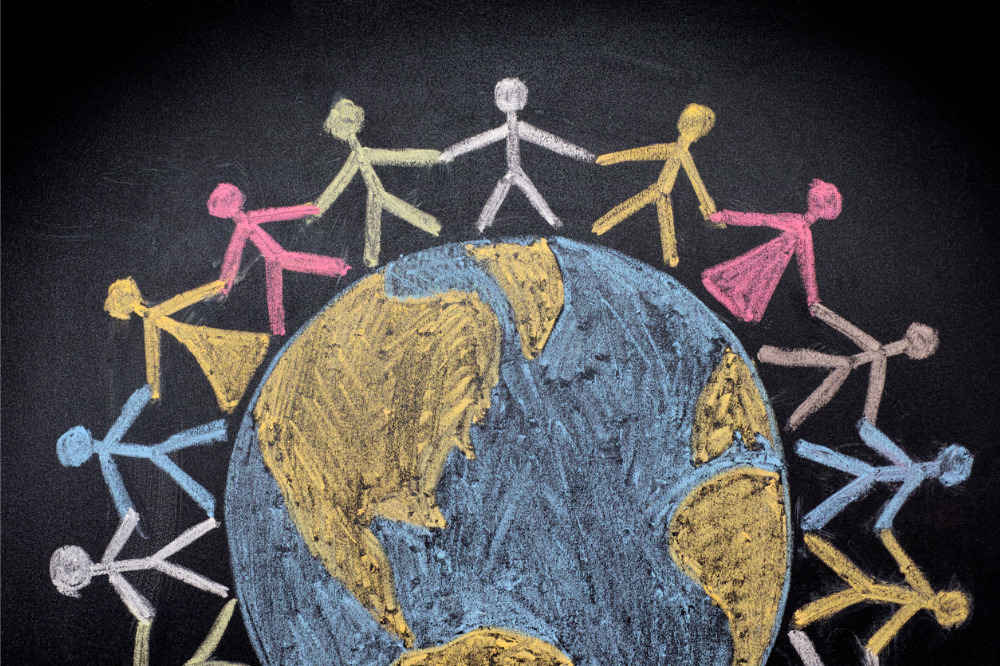
In 2019, the United Nations’ Department of Economic and Social Affairs (DESA) released its World Youth Report, delivering a powerful message to educators around the planet: ‘This generation can change the world – if we let them’.
Thanks to the ability to access and monitor news and current events at any time and from any place, the current generation are more politically and socially aware than perhaps any before it.
In an encouraging finding, a major study of 25,800 school-aged children recently revealed that equity and discrimination is the top national issue for Australia’s young people.
And a separate study has just revealed that young people are indeed “keenly political”, offering hope that students will leave school as more proactive, solutions-focused citizens.
The ‘What Matters?’ survey, conducted by the Whitlam Institute at Western Sydney University, collected the views of more than 27,000 children around Australia to gauge their views on social and political issues in 2020.
The What Matters? writing competition was established in 2008, inspired by former Prime Minister Gough Whitlam's commitment to involving young people in the shaping of Australia's future.
According to Associate Professor Philippa Collin, who led the study, the entries in this year’s report “have a uniquely political character”.
“Young people are an untapped resource for Australian democracy – not for what they will become as adults, but because of their concerns and ideas on social issues and how they can be addressed right now,” Assoc/Prof Collin said.
The report also highlighted the environment as a common issue raised across all age groups and all years of the competition.
Over time, more entrants’ essays address the environment, global warming, pollution and climate change and Australia’s role in addressing these problems.
At the roundtable launch for the research, Anne Hollonds, National Children’s Commissioner, reflected on the variety of issues the research identified as important to young people and noted the strength of their convictions.
“Young people don't obscure the truth by using jargon or unnecessarily technical language. Young people are great communicators of science, values, human rights and human experience,” Hollonds said.
“Their voice is compelling because it comes from the heart and the mind. Children and young people own the future; whereas, those of us who are older, do not. Their voice in the present is an inherent threat to the status quo”.
Across Australia, work is underway to boost civics education and empower young people to play a greater role in tackling the world’s most serious issues.
Education not-for-profit Cool Australia partnered with the Australian Human Rights Commission (AHRC) to create an 18-lesson unit for Year 7-10 which aims to broaden students’ understanding of democracy and its function throughout history with captivating curriculum for history and civics and citizenship classes.
“Students can never know too much about democracy if they are to become active and informed citizens,” Chris Vella, the head of education at Cool Australia, told The Educator.
“These curriculum linked-resources support students from years 7-10 to building a critical understanding of human rights and responsibilities, and to develop the knowledge, attitudes and skills to apply human rights in everyday life”.
Last year, the Victorian Government asked the Victorian Curriculum and Assessment Authority (VCAA) to work with students to improve civics and citizenship education in schools across the state.
The move was in response to concerns that existing civics programs were causing many students to tune out.
“Schools need to teach CCE through and for democracy. Teaching about democracy is dull and boring to most students,” Southern Cross University (SCU) researcher David Zyngier told The Educator.
“Real active citizenship would be more inclusive of various social movements in society”.
Dr Zyngier said being active in this sense means being “socially engaged and committed to collective problems solving at all levels of the political community”.
“Civics related knowledge is necessary but not sufficient for becoming a competent democratic citizen. Participatory democracy has the potential to become a struggle for social justice and equity,” Dr Zyngier said.
“Producing better curriculum materials will not in itself deliver the results expected or intended”.


